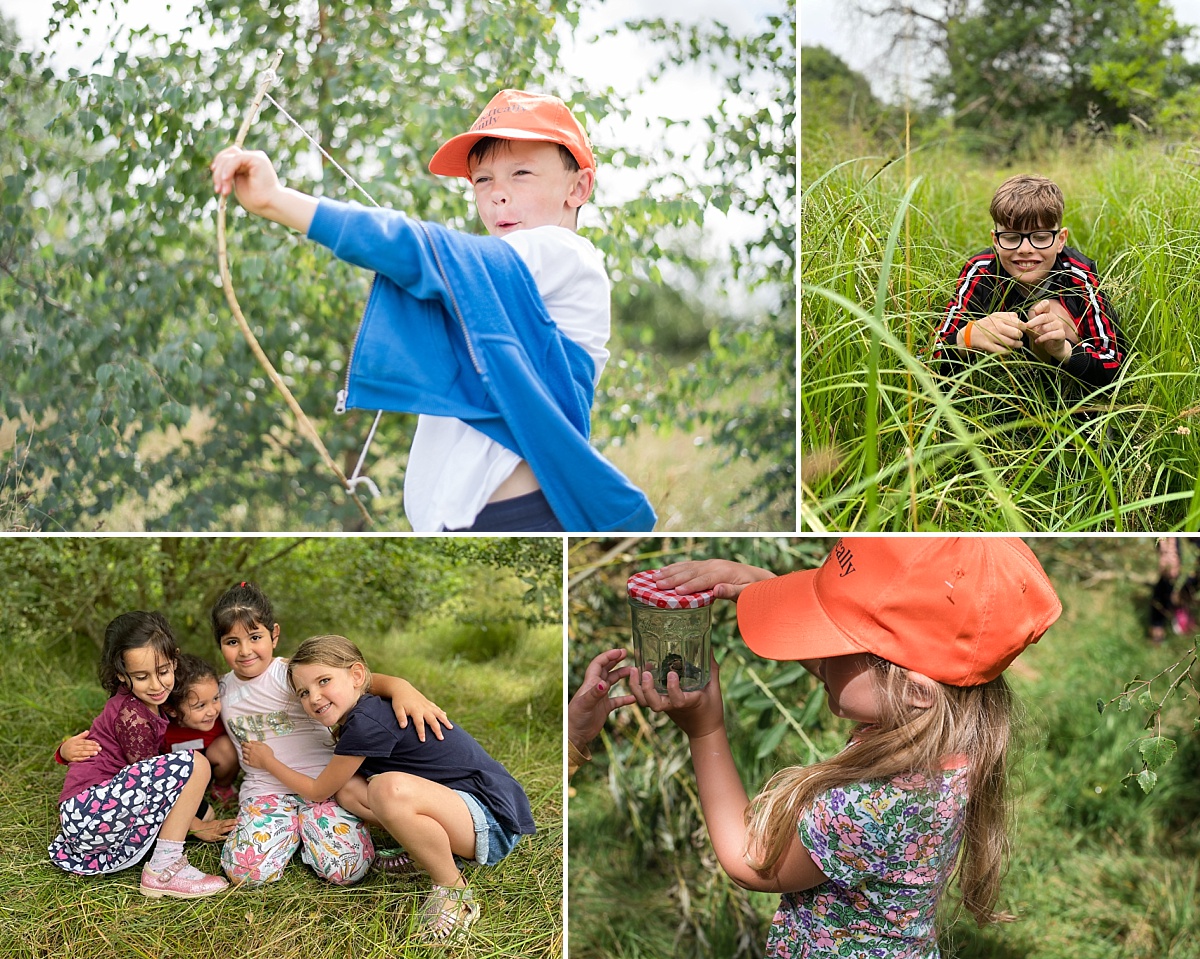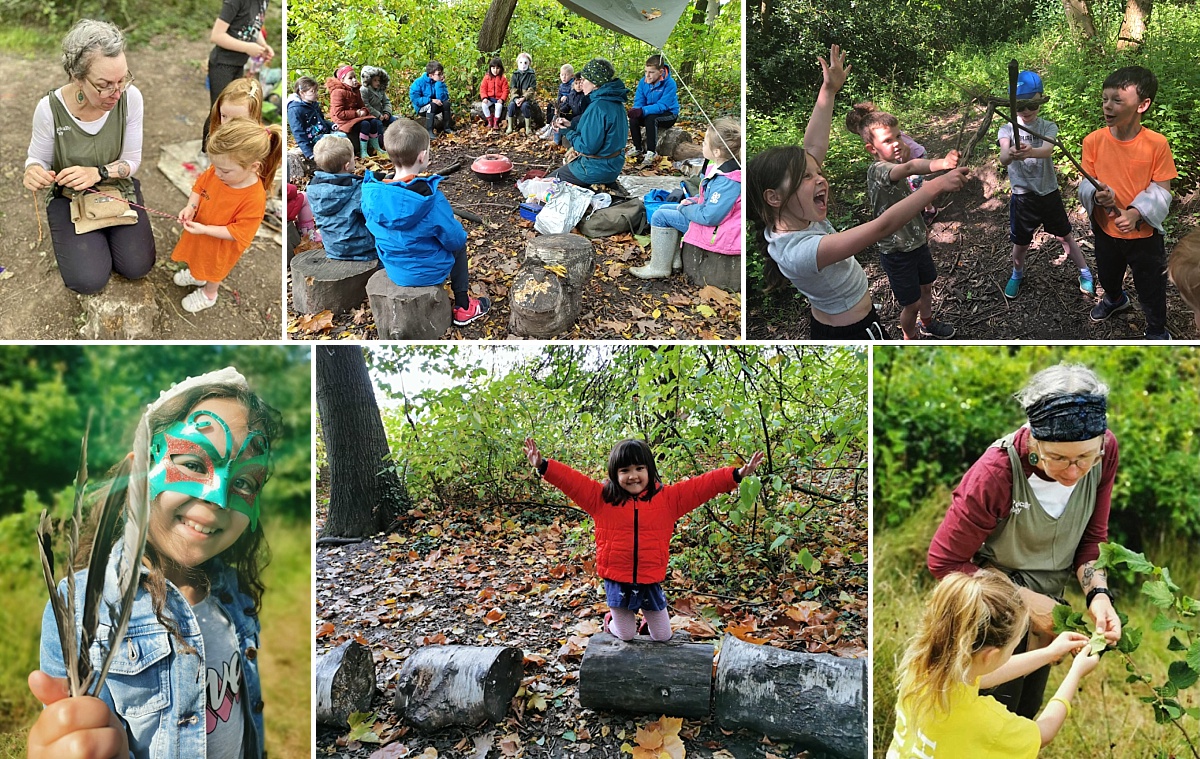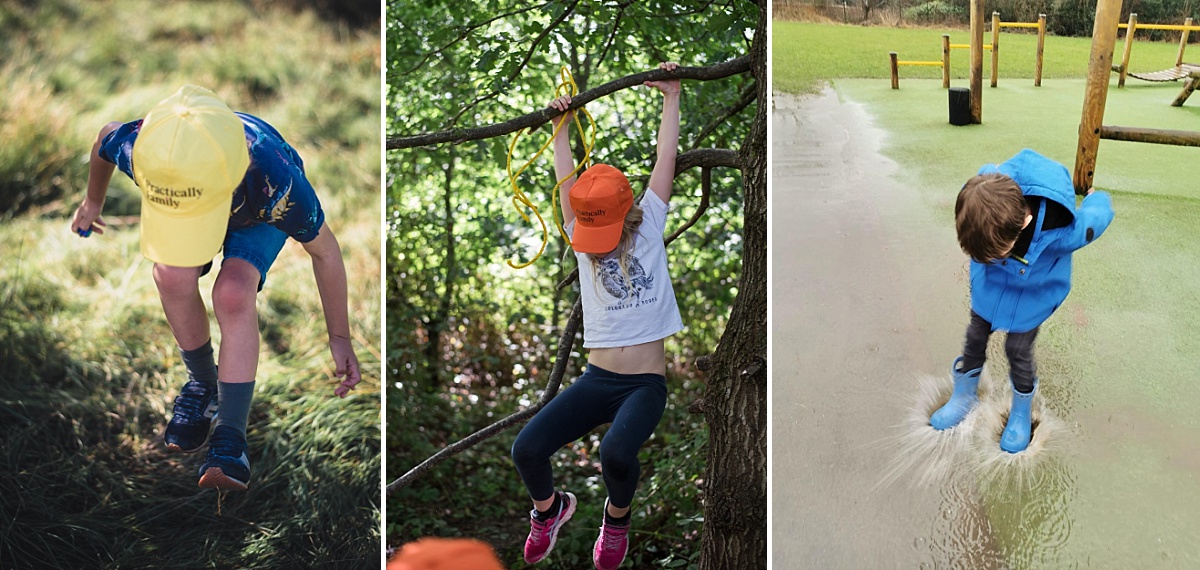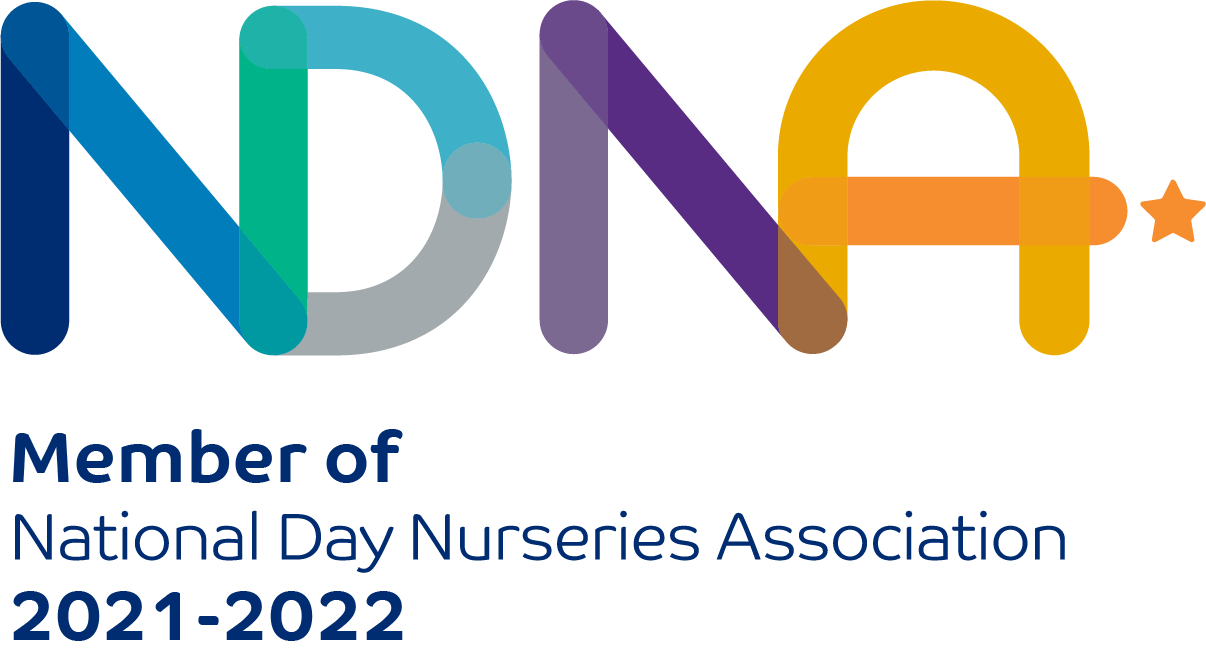We often refer to our ‘Practically Wild’ activities at POD and Holiday Club, but what exactly is it? Here’s Jo Brewerton, our Practically Wild Educator, or ‘outdoors lady’ as the children call her, ready to answer all your questions!
What is Practically Wild and why is it important?
Practically Wild is essentially child-centred outdoor time. Whatever the time of year, being outside is so immersive. It engages and challenges the child physically, socially, cognitively, and emotionally. The sounds of the rain, wind, birds, squelching, things falling, the drama of nature sparking curiosity and an invitation to free play.
As Practically Wild Educator I deliver a wide range of outdoor experiences to encourage children to; explore their boundaries, follow their interests, challenge themselves and most of all to develop a deeper connection with the natural world and the health benefits it offers.
This happens when we use the natural world and ‘tread lightly’ on it, trying to leave no trace, and developing a commitment to looking after the environment. We use mostly natural resources for inspiration, to enable ideas and to encourage self-motivation to play, create and explore, experiencing abstract concepts such as life-cycle food chains and how materials behave, like wood in a fire (supervised of course!)
It’s really all about raising awareness of the natural world with our children, fostering better relationships with nature through regular experiences so that we can develop long-term, environmentally sustainable attitudes and practices in our community.

How do you run Practically Wild at Holiday Club?
With such glorious outdoor spaces to explore at Holiday Club, I start by developing activities that can stretch a child’s senses, support their social, physical and motor skills and look at how I can adapt these for each child’s needs and age.
This means, playing games, acquiring skills, respecting the natural environment, and learning more about the ‘more than human world’ and how to take care of it. For the children it’s simply ‘fun’ - think nest building, designing eco bird feeders, making fires for our outdoor pancakes and moulding mud monsters!
Free nature-play acts as a release valve allowing children to feel in control and make sense of their current experiences, leaving adult concerns and stresses behind - something which is a priceless post-pandemic experience.

How do you run Practically Wild at POD?
We have carefully woven Practically Wild into the POD curriculum, allowing young children to explore the world with hands feet and body, as well as their eyes ears nose and mouth. It is a materials-based learning that shapes the brain. Getting to grips with the real thing as opposed to inhabiting a virtual world is a vital part of their learning.
The rich outside area allows for experimentation and play with earth, plants, creatures, and each other. By being sociable and free to explore, the children satisfy their natural curiosity and experimental urges.
Maria Montessori observed that learning is closely tied to movement and autonomy. So, by playing outside the children can direct their exploration at their own pace, in an environment that is rich in experiences. We may be looking at dew on spiderwebs, puddle-bashing with brushes, painting on the floor with powder paint in the rain, sorting seeds by size and planting, nurturing and eating the produce. All of this leads to improvements in children’s confidence, concentration, fine motor control and teamwork.

How can we go Practically Wild at home?
There are so many opportunities! My 4 top tips would be:
- Daily - be available for some unstructured outdoor play.
- Weekly - plan a nature outing to explore and discover; gardening, birdwatching, nature walks, identifying plants or collecting objects.
- Monthly – join in with a local project. For example, volunteer in your local park.
- Yearly - go even further and find wilderness!
Supporting children’s independence is an important part of the Practically Wild ethos. We accept there are risks in everything we do, and we grow by overcoming them, so we aim to manage risk appropriately allowing our children to become healthy, resilient, creative, and independent learners.
Now, as a parent, this is much easier said than done! But I’d encourage you to have an open minded approach to risk, whether that’s allowing them to climb a tree or go out freely in their local area. That way, children can constantly expand on their abilities by solving real-world issues, building self-belief and resilience.
As Roald Dahl said, “the more risks you allow your children to take the better they learn to look after themselves.”
Finally, a few basics! To start playing, exploring and learning, your child needs to feel warm and safe. The best thing you can do to support your child is to ensure that they have a light long-sleeved top and sun-cream applied and a HAT! Also, that in inclement weather they have layers (multiple thins ones are best) not forgetting wellies. Do not use precious clothing, getting mucky is part of the fun!!
Take a small backpack when you go out, have an eggbox for collecting (and sorting), some string for making nature dangles and tying things together, a magnifying glass for looking at the small things and a nature identification book. Also always, always have a drink and something to eat because Enid Blyton had it right with the Famous Five books, “picnicking is the best thing ever.”

We’d love you to join the adventures! Find out more and book your place at POD and Holiday Club on our website.




